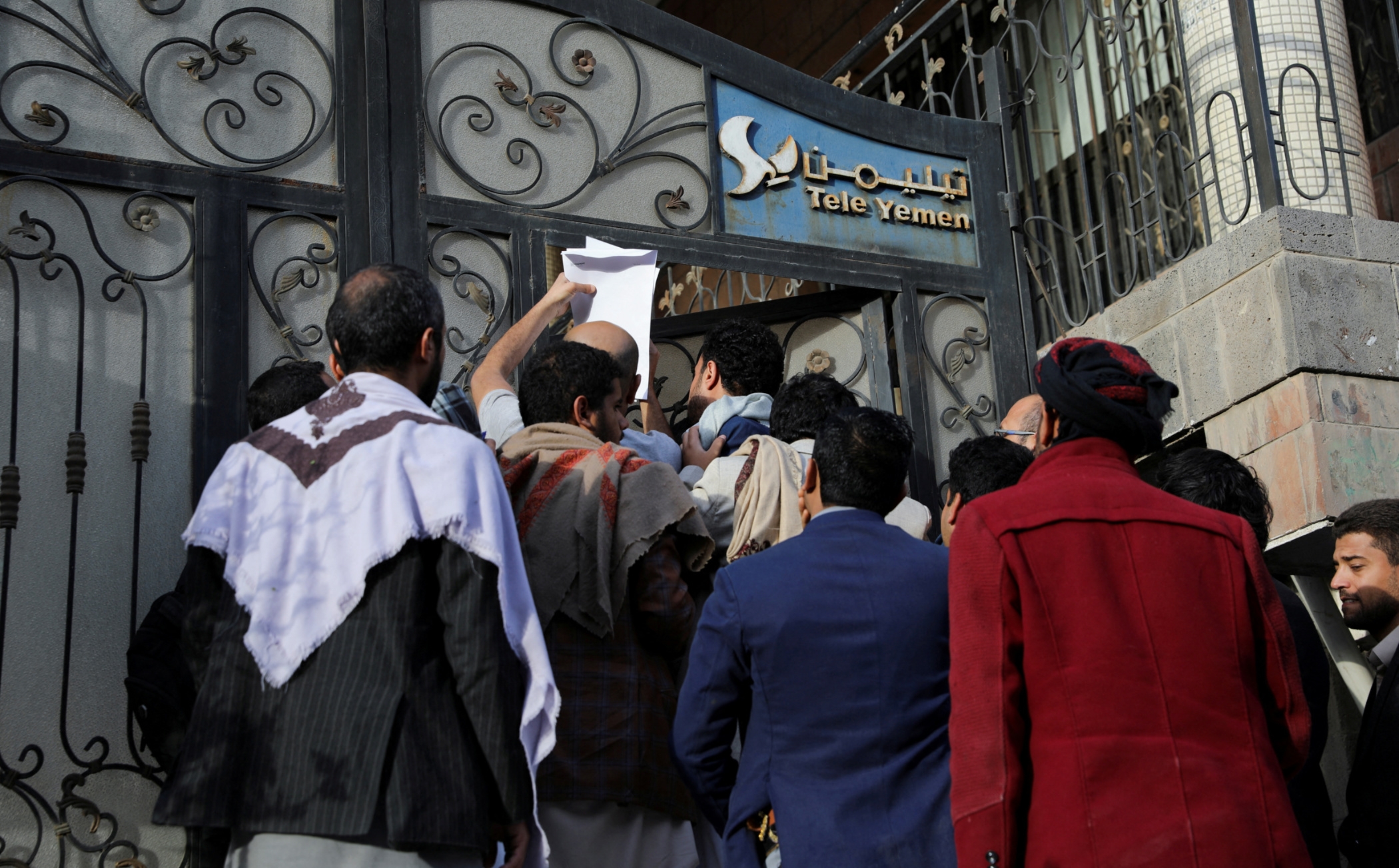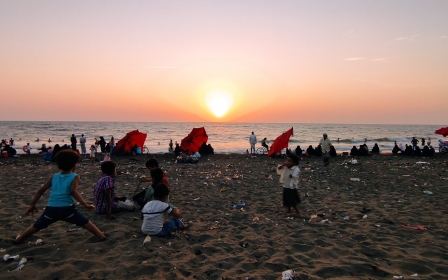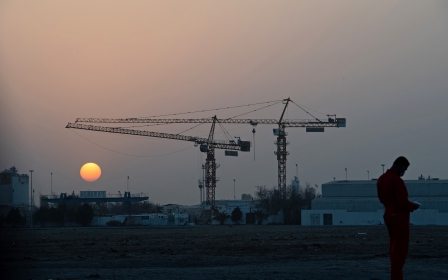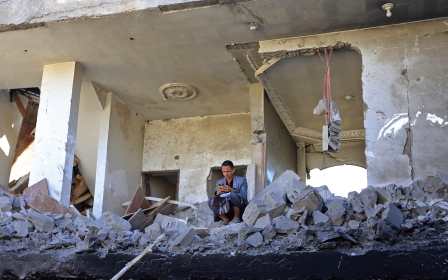Internet blackout plunges war-weary Yemenis into the dark ages

When the Saudi-led coalition bombed a telecommunications hub in Yemen’s port city of Hodeidah last week, triggering a nationwide internet blackout, Mohammed Abdul-Bari found himself unable to work.
The blackout has been ongoing since the night of 21 January, and only those who have satellite connection or use Aden Net, a government internet service provider for those who live in Aden city, can access the web.
'If this blackout continues, it means losing my work and facing real suffering'
- Mohammed Abdul-Bari
Abdul-Bari relies on the internet for his work in digital marketing in Sanaa, but after the attack, he has no other options than to stay at home and attempt to do his job by phone.
“I didn’t think that one day there would be zero access to the internet, but it has happened and I’m almost a man without a job right now,” he told Middle East Eye.
“I tried to find an alternative but there’s no way. A satellite is a choice, but that costs thousands of dollars and I hardly earn enough money to provide for my family as it is.”
New MEE newsletter: Jerusalem Dispatch
Sign up to get the latest insights and analysis on Israel-Palestine, alongside Turkey Unpacked and other MEE newsletters
Abdul-Bari said that only companies and big business owners can afford the costs of satellite installations and the monthly costs of the internet provided through them, confirming that normal Yemenis can do nothing but wait until internet services are resumed.
“I don’t have a salary and I work on commission, which means when I don’t work, I don’t get any money and this is what’s currently happening,” Abdul-Bari added.
“If this blackout continues, it means losing my work and facing real suffering.”
‘We have enough troubles’
There are many people like Abdul-Bari whose livelihoods depend on working online, such as those in programming or communicating with traders outside the country to export goods.
“The whole world depends on the internet, and many jobs depend completely on it, but in Yemen, it seems, we can no longer rely upon it since anything bad is possible,” said Abdul-Bari.
“Perhaps we will lose access to the internet permanently, much like we lost electricity.”
Electricity blackouts started in Yemen in 2015 when the war began between the internationally recognised government, supported by the coalition, and the Houthi movement. It then became available in government-held southern provinces, but there is no public electricity in Houthi-controlled areas, where people resorted to solar energy or electricity from private generators.
“Our message to the Saudi-led coalition is to avoid targeting basic services as we already have enough troubles in this country and all we need now is to maintain our sources of income,” Abdul-Bari added.
“I hope the internet will be back soon and we can resume our work.”
Social relations
Yemeni expats rely on video calls with their families in Yemen to maintain connections, but now they feel that the blackout has deprived them of a very important element in their lives, adding to the hardship of living abroad without talking to loved ones.
“I used to speak to my family and see my son every two days, as that helps me when I am living away from home,” Ashraf Abdul-Rahim, a Yemeni expat in Saudi Arabia, told MEE.
“Now I feel the suffering of my grandfathers when they were expats. It is really difficult to spend time without talking to your family.”
Abdul-Rahim said that he cannot afford the luxury of making long-distance phone calls, particularly as he is trying to save money in Saudi Arabia.
“We have no solution but to wait until the internet is back in Yemen and we will talk to our families,” he added.
Silver lining
As grave as the situation has been for many, there is a silver lining to the crisis that some Yemenis are experiencing - more time to spend with family and friends without the distraction of the internet.
Instead of surfing the internet and spending time on social media, Rafat Yasin, 36, has been going out to chew qat, a narcotic leaf popular in Yemen, with friends and relatives, or to have a cup of tea in one of the cafes in Taiz city.
“I work in a local company until noon and then I used to spend a long time on the internet,” Yasin told MEE.
'My mother has felt the difference, and she is happy with this blackout'
- Rafat Yasin
“In the last three days, I realised that I spend a huge time online, disconnected from relatives and friends.”
He said his mother has been happy with his daily visits since the blackout and he has visited relatives he rarely sees.
“My mother has felt the difference, and she is happy with this blackout.”
In Aden, meanwhile, only a small number of people use the Aden Net service, while the majority has lost access to the internet. They too are now spending more time out in the city.
Ghanem al-Qershi, a cafe owner in Aden, said he has seen footfall increase in his shop in the past three days.
“I can see new faces in my cafe and those who used to come once a week, they are now coming every day,” Qershi said. “I have more income nowadays and I hope it stays that way, but I definitely don't wish for the blackout to continue, as people depend on it [the internet].”
Qershi said that most of the customers come in groups to his cafe and spend a longer time than usual in chats and discussions.
“It is the first time that people in Aden lose access to the internet and we have seen more customers out, buying from street vendors like boiled potatoes sellers and others,” he added.
“That’s a good face of this blackout.”
Middle East Eye delivers independent and unrivalled coverage and analysis of the Middle East, North Africa and beyond. To learn more about republishing this content and the associated fees, please fill out this form. More about MEE can be found here.





